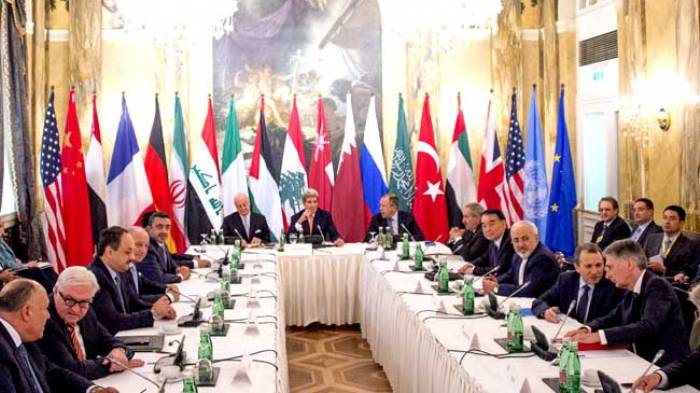Vienna Talks and the Future of Syria

By: Javid Ghorbanoghli
The Vienna talks on Syria and the joint communiqué released by the participants can be analyzed at two levels: field developments in Syria and domestic developments. The developments at the field level have convinced all concerned parties that, without Iran's direct engagement in negotiations, there are no chances for a solution or agreement. The determination of anti-Assad powers to topple the Syrian president and replace him with their preferred alternatives has failed. A part of this failure goes back to Iran's and Russia's support for the Syrian government.
Iran's current regional and international status is another factor. Despite Iran's influential role, previous conferences on the Syrian crisis were held without Iran's presence. Nonetheless, Iran's post-JCPOA status has turned Turkey and Saudi Arabia into marginal actors, despite their fierce opposition to Assad remaining in power. There is little doubt that a key accomplishment of the nuclear talks was a shift in view towards Iran's regional role. This is a major success for Iranian diplomacy in the regional and international scene.
We should not be over-optimistic and expect the Syrian crisis to be resolved in a single session however. It would be pretty naïve to think that a five-year crisis can be settled in one meeting, even if all influential parties were invited. A catastrophe that has led to the death of 250 thousand Syrians and displacement of millions cannot be concluded in one session. The role of countries such as Turkey, Saudi Arabia, and Qatar in creating this catastrophe makes a quick fix impossible. However, the second Vienna talks bore significant achievements. If the current atmosphere prevails, a solution to the crisis becomes feasible.
Another major achievement of the Vienna talks was the emphasis on a rapid end to the Syrian crisis, as reflected in the nine-point statement. Stressing the need for a cease also bore particular importance. Ceasefire is a prerequisite to any solution and one cannot expect for negotiations to succeed amid bombardment and battle. Holding elections under international supervision and direct talks between the government and the legitimate opposition were two other valuable points.
Despite the achievements that were mentioned, two basic points of contention will remain. First is the role of Bashar Assad in the future, a second is the fate of forces battling against Assad. Recent remarks and news suggest an unwritten agreement between all parties that Assad will have no place in the future of Syria. But how is that going to take place? There is general agreement that Assad should not leave office in the short-term. In other words, his relinquishment of power should not be a prerequisite to negotiations. However, the main question of how Assad should hand over power still remains. Assad should remain in power as long as other actors do not feel in loss, and should hand over power after the elections. Logically thinking, a ruler during whose rule Syria has experienced massive death and displacement cannot have a place in the future of the country. At this point, Bashar Assad should concentrate on protecting the territorial integrity of Syria.
Regarding the second issue, the fate of anti-Assad forces fighting against the Syrian president is also important. Countries supporting these forces will not stop their support. The role of anti-Assad forces in Syria's future will be another point of contention. There have been agreements about the Free Syrian Army to join the process of talks, and participate in the political process and the transition afterwards. There is consensus that groups such as ISIS will have no role in the future of Syria, but ISIS may keep its role as the leverage of certain countries in the region, and that may create problems during the process of negotiations.
* This piece was originally published in Iranian Diplomacy Persian. Javid Ghorbanoghli has served as Iran's ambassador to South Africa.

